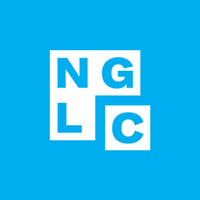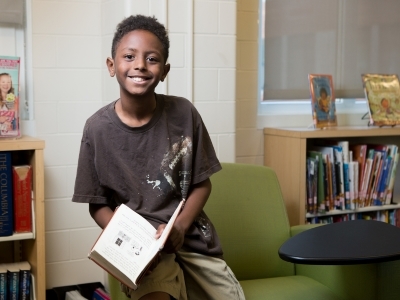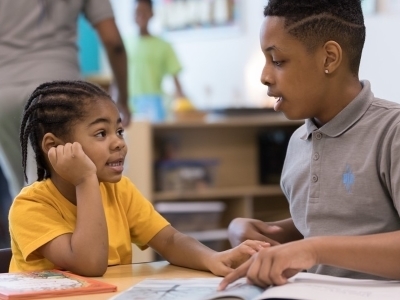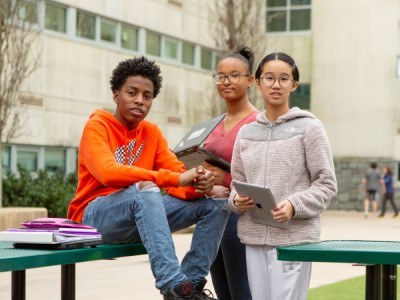PRESS RELEASE: $2 Million Grant Initiative to Catalyze New Roles, Strategies for Assessment to Promote Deeper Learning Outcomes for Students
Topics
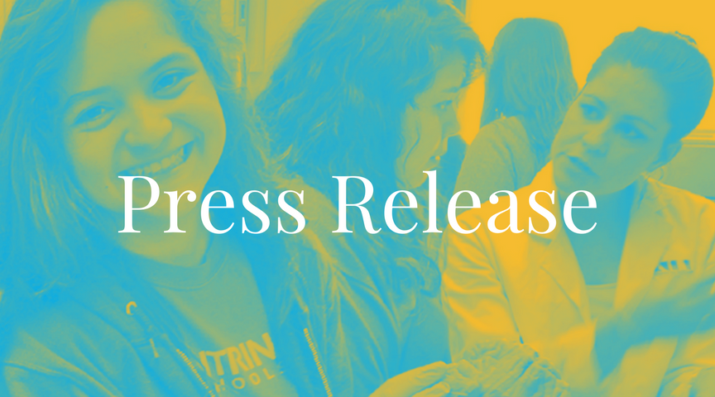
Educators are rethinking the purposes, forms, and nature of assessment. Beyond testing mastery of traditional content knowledge—an essential task, but not nearly sufficient—educators are designing assessment for learning as an integral part of the learning process.
Assessment for Learning Project seeks to kindle practice-level innovation capable of informing and shaping system-level change
Washington, D.C., October 23, 2015—The Center for Innovation in Education (CIE), in partnership with Next Generation Learning Challenges (NGLC), today announced a Request for Learning (RFL) for the Assessment for Learning Project, a new $2 million grant program made possible with the generous support of the William and Flora Hewlett Foundation and the Bill & Melinda Gates Foundation. The initiative will award 12-15 grants for educators to fundamentally rethink the roles that assessment should play to advance student learning and to improve our K-12 education system.
The initiative has two core goals: 1) to advance our understanding of assessment’s essential roles in the learning process as learning models become more personalized, less cohort-restricted, more competency-based, and student-centered; and 2) to help inform and develop crucial enablers such as a) models of assessment and accountability system design, b) models of educator capacity building, and/or c) use of technology tools, all to advance Goal One. Districts, CMOs, schools and not-for-profits that have demonstrated a commitment to advancing the initiative’s goals are invited to apply.
“This project is crucial as learning models become more personalized and competency-based,” says CIE’s Executive Director Gene Wilhoit. “By pursuing these goals through a Request for Learning (RFL), we want to emphasize the formative nature of the work.”
As part of the Assessment for Learning Project, grant recipients will receive awards ranging from $50,000 to $225,000, along with personalized technical assistance, high-quality learning experiences and access to a collaborative network, all aimed at catalyzing new and improving on promising current efforts in assessment design.
“The Assessment for Learning Project is focused on shifting the paradigm of our country’s current emphasis on assessment of learning to include assessment for learning,” said Andy Calkins, Deputy Director of NGLC. “Assessment—applied in many different forms—can and should play a much more natural and embedded role in the learning process. This initiative offers an opportunity to support and learn from a cohort of innovators to push our collective thinking around new practices, with potential implications for the redesign of whole assessment systems.”
The project is also focused on empowering educators in this work. “We are strong advocates for a much more active role, in fact, a leading role for teachers. For too long, teachers have been asked to be consumers of others’ ideas and programs. We should be engaging teachers in central roles in all of this work,” says Wilhoit. “We see lasting improvement when teachers become the producers of new knowledge, supported by the best research and expertise. To make this a reality, historic practices and structures dating back many decades will be replaced by dynamic learning communities during this project’s initial phase and beyond.”
Applications for the Assessment for Learning project are due by December 10, 2015 and decisions will be made by January 2016. For more information and to access the Request for Learning (RFL), visit: https://www.nextgenlearning.org/grants/assessment-for-learning-project.
---------
About Next Generation Learning Challenges
Next Generation Learning Challenges (NGLC) accelerates educational innovation through applied technology to dramatically improve college readiness and completion. NGLC is managed by EDUCAUSE, a nonprofit association whose mission is to advance higher education through the use of information technology. Since 2011, NGLC has provided more than $70 million in investment capital to foster the development of transformational K-12 and postsecondary models aimed at improving the quality and depth of learning outcomes in the U.S., particularly for low-income students. Funding for NGLC has been provided by the Bill & Melinda Gates Foundation, the Eli and Edythe Broad Foundation, the Michael & Susan Dell Foundation, and the William and Flora Hewlett Foundation.
About The Center for Innovation in Education
The Center for Innovation in Education (CIE) was established at the University of Kentucky in early 2013 with funding from the William and Flora Hewlett Foundation and the Bill & Melinda Gates Foundation to support systems-wide shifts to personalized learning in support of deeper learning outcomes for all students. CIE focuses on creating verticals within states (at state education agencies, district, and local levels), and catalyzing cross-state work that coalesces people in similar roles around complex problems of policy and practice.
##

